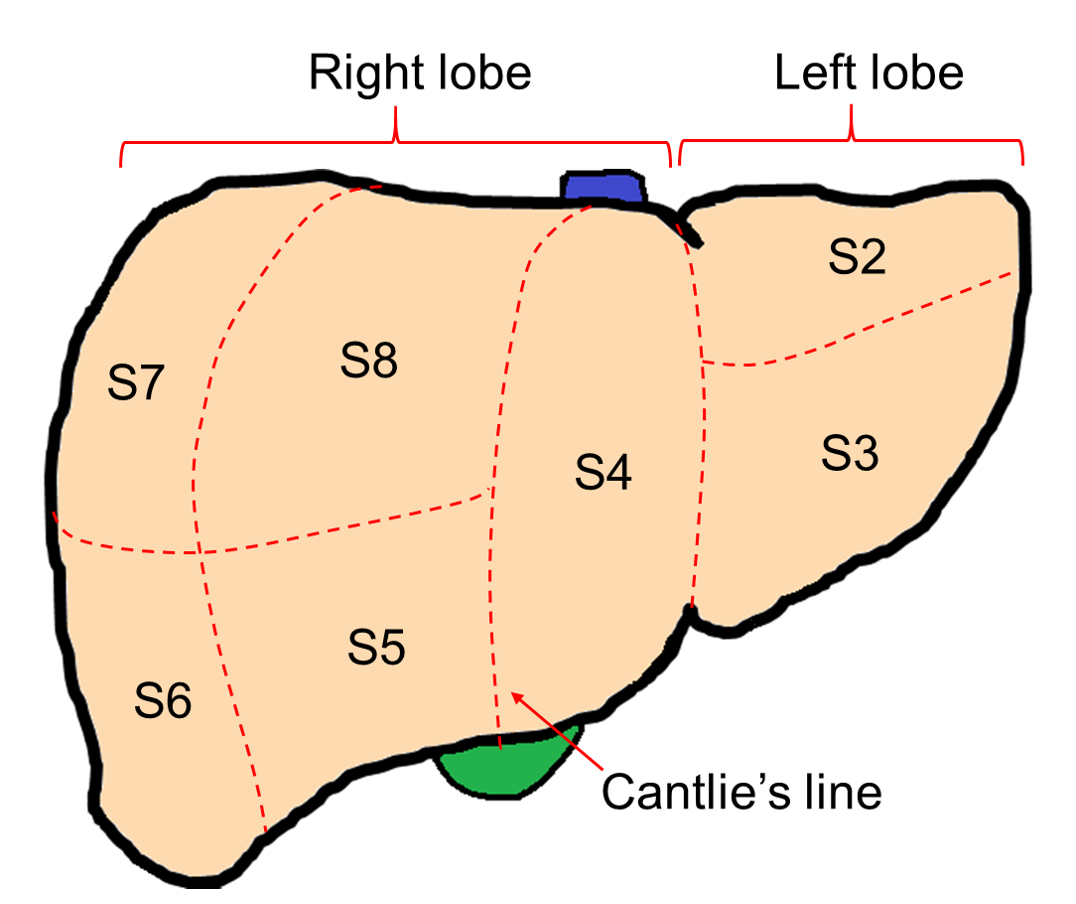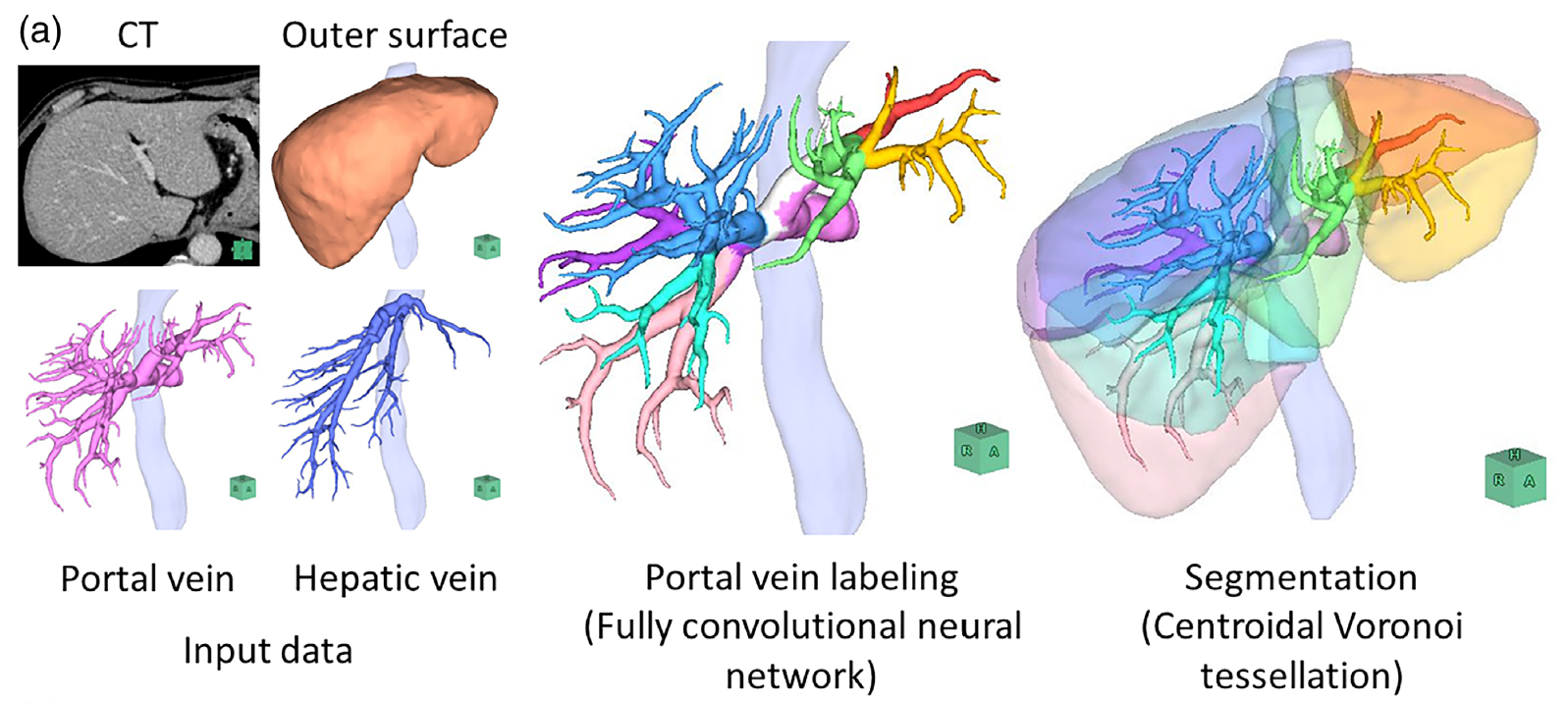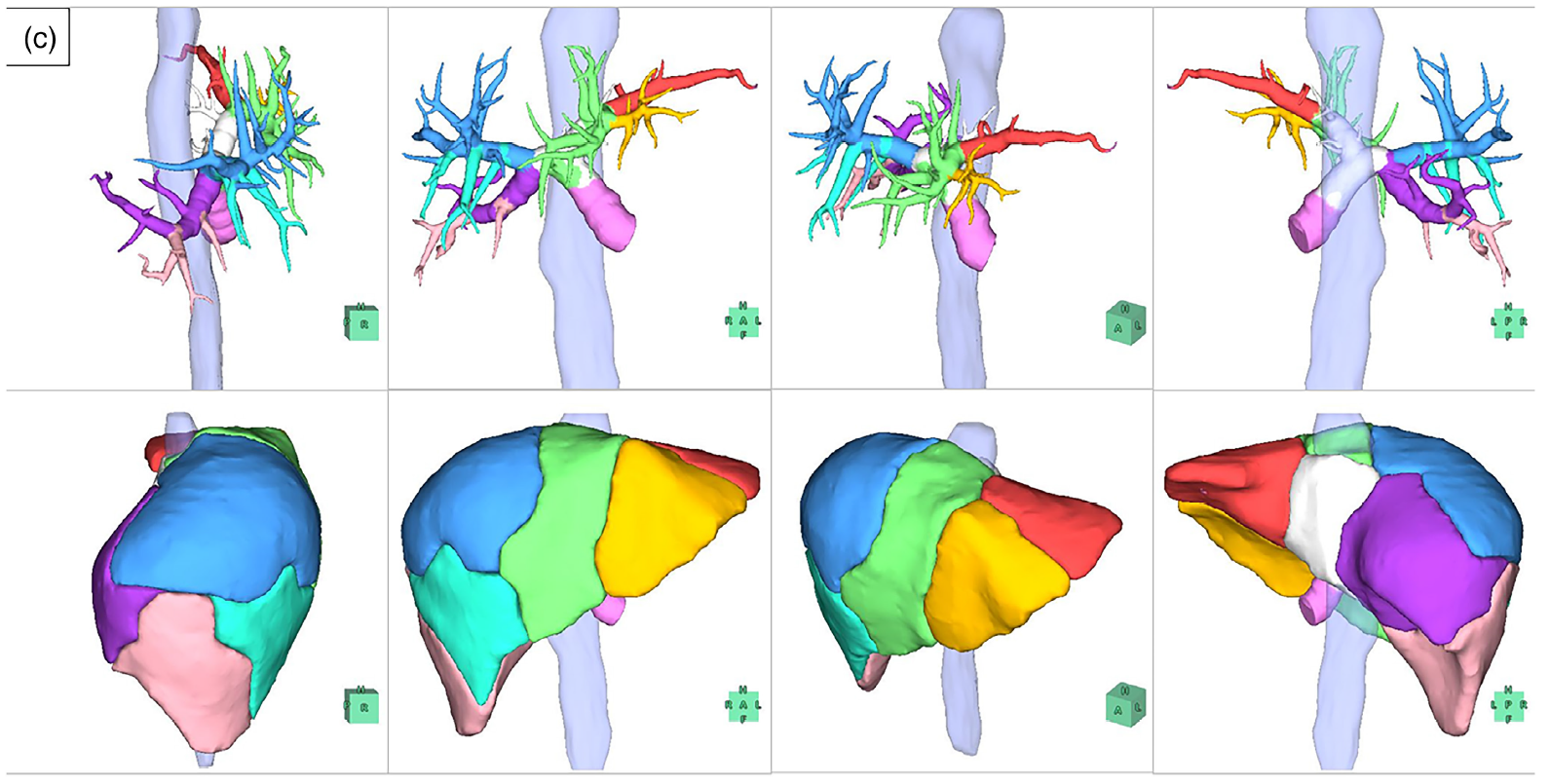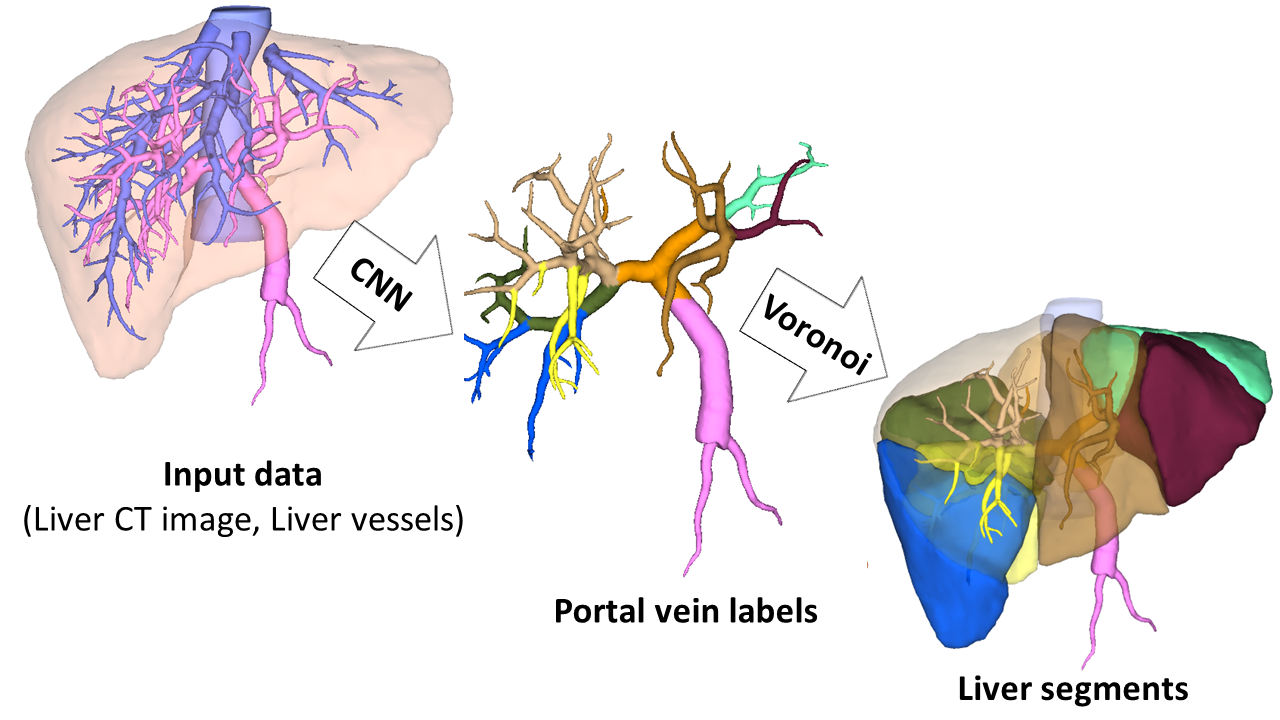The liver has eight functionally independent segments each with its own vascular inflow and outflow (Figure 1). Hepatectomy involves removing part or whole liver segments for liver transplant or tumor resection. In recent years, preoperative virtual hepatectomy with three-dimensional reconstruction of liver segments and its vasculature has become standard. However, virtual hepatectomy has not been automated, and it is a burdensome task for surgeons and radiologists. In this paper [1], the authors develop a new two-step algorithm to automate liver segmentation in CT images (Figure 2). Liver segmentation correctly divided 100% of the hemilivers, 92.8% of the sectors, and 91.6% of the segments (Figure 3). In the future, such algorithms will make 3D simulation easier and lead to safer liver surgery.



DOI: https://doi.org/10.1002/jhbp.1357
CAUTION:This is Fujifilm Global Website. Fujifilm makes no representation that products on this website are commercially available in all countries. Approved uses of products vary by country and region. Specifications and appearance of products are subject to change without notice.
